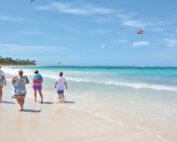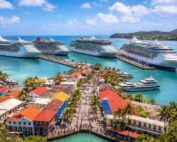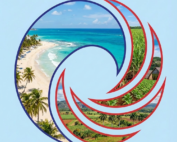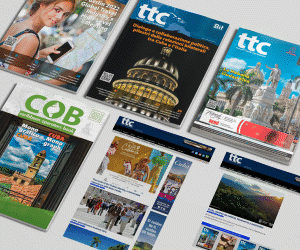By Frank Martin
Caribbean authorities consider effective the region reaction against Covid-19 pandemic.
Nevertheless they think that in next reopening stage tourism business will be very complex.
Caribbean governments and private companies expect the economic impact of the pandemic on tourism to last much longer, after the opening, than the epidemic.
Jamaica’s Minister of Tourism Edmund Bartlett said in an analysis that collective successes in decisive leadership, rapid action and effective communication in the Caribbean will have to be combined.
Before region recorded its first case of the new coronavirus, the Caribbean Public Health Agency reacted adequately by defining the risk as moderate to high.
Bartlett wrote that 10,230 samples have been taken in Jamaica so far, of which 9,637 were negative and 552 were positive.
The pandemic is expected to cause a contraction of the tourism sector from 20% to 30% in 2020.
According to the Economic Commission for Latin America and the Caribbean (ECLAC) May report
the risks and shocks associated with the prolonged recession in international tourism are likely to be disproportionately greater in the Caribbean.
Such forecast is based on the fact that the region is the most dependent on tourism in the world.
For the Caribbean states, tourism represents between 11 and 19 percent of direct production gross domestic product (GDP).
In countries such as the Bahamas, Barbados and Jamaica, the proportion rises from 34 to 48 percent of total GDP.
There are many concrete examples of the drop in income caused by the global pandemic.
Since March, there has been little or no tourist activity in most Caribbean countries, ECLAC stressed in its report.
The borders were closed completely for both passenger air transport and cruise ships.
Most hotels have received no guests since March, and their staff has been sent home indefinitely.
Most destinations have been forced to revise the original year-end revenue projections for 2020 based on the high rate of flight cancellations and early bookings.
The Commission stressed in its report that the most immediate impact of the consequences is on employment.
In the case of Jamaica, the leisure industry directly employs 160,000 people.
Authorities in the region believe that there are severe threats to the industry that will not end when the epidemic ends.
“This means that the economy and future are much more likely to be destroyed by COVID-19 than nations with more diversified economies,” according to ECLAC.
Today, regional airports and hotels are closed, unemployment across the region is skyrocketing, and no one knows when these jobs in the tourism sector can return.
Bartlett stressed that the most urgent priority is to ensure the health and livelihoods of tourism workers and prepare the sector for reopening in the shortest possible time.
He added that in Jamaica the economic stimulus has been used to help companies access benefits.
Partnerships with financial institutions have also been encouraged to relax loan agreements and improve access to credit, identify alternative supply chains, and promote digital marketing and human resource development.
“We have made available two billion dollars in grant assistance for tourism and small businesses affected by the Covid-19 outbreak,” said the minister.
Among the points of interest presented in Jamaica is a five-point plan for the recovery of the tourism sector that includes the development of solid health and safety protocols.
Also greater training for all segments of the tourism sector, construction of security infrastructure and acquisition of PPE and hygiene tools.
(Sources in TurboNews and Cepal)

MORE NEWS















